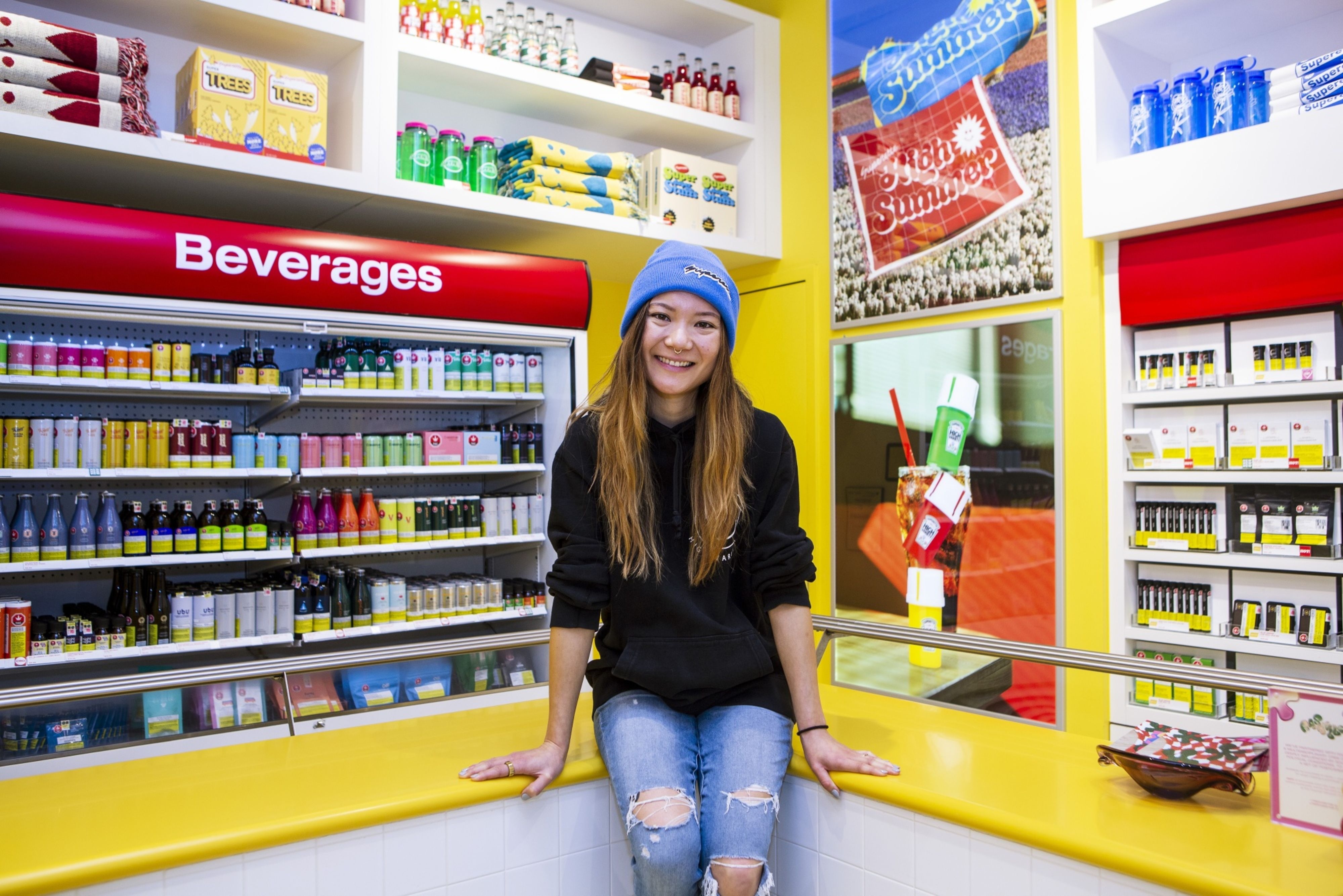Nov 8, 2021
Pot dispensaries are Toronto’s favorite new retail tenant
, Bloomberg News
Some Ontario cannabis stores to close doors by 2022: BMO analyst
High street has taken on a new meaning in Toronto, where pot shops are filling up storefronts that other retailers left behind during the pandemic. Now, the problem may be oversupply.
Just over 320 cannabis dispensaries have opened in Canada’s largest city since January 2020, according to real estate brokerage Colliers International. That makes for a 2,485 per cent increase from 13 before that, at a time when more than 3,500 other kinds of stores closed down.
In Kensington Market, a bohemian enclave of thrift stores and offbeat restaurants, four marijuana dispensaries sit on one block, with two directly across the street from each other. At least 10 weed stores dot Queen Street West, one of Toronto’s biggest shopping districts, with signs promising two more on the way.
Pot stores are the final frontier in Canada’s $2.6 billion (US$2 billion) recreational marijuana industry. But for Toronto’s newest tenants, the increased competition risks driving down margins in a market where retailers are already handicapped by only being able to sell products supplied by the government's wholesaler. Profits may also be hard to come by for the over-zealous tenants who signed leases at above-market rents amid the frenzy to establish a toehold.
Since Junior Sritharan and his brother opened Shivaa’s Rose off Bloor Street in February, three new competitors have popped up within a few hundred feet.
“Market saturation isn’t good for anyone,” he said. “The only game plan here is to wait it out and watch the blood spill.”
GREEN RUSH
After recreational marijuana was legalized nationally in 2018, consumers in Ontario could only buy from the government or a handful of private stores. It wasn’t until March 2020 that Ontario threw open the application process for private dealers to sell weed products in-store. The provincial government has since doubled the pace of new store permits, then doubled them twice more after that, in a bid to stamp out the illegal market.

“Everyone looked at the space with dollar signs in their eyes,” said Mimi Lam, who co-founded Superette, a chain of dispensaries that has opened four stores in Toronto since July 2020. “That was driven by the dreams of the green rush.”
At first glance this would seem a welcome change for landlords, who saw stores vacated and rents fall in the pandemic. In Toronto’s tony Yorkville area, the median retail rent fell roughly 17 per cent to approximately $192 per square foot during the pandemic, while rents on Queen Street West dipped about 11 per cent to about $80 per square foot, according to data from brokerage CBRE Ltd.
Still, a lingering stigma about weed meant landlords were reluctant to rent to dispensaries, often demanding they pay a premium.
In some cases, cannabis retailers had to offer double the market rent just to get landlords comfortable, said Josh Harris, a broker with Colliers in Toronto. Sritharan, the dispensary owner, said he had to pay $15 more per square foot than the market rate to secure his space — and that was after losing bidding wars on multiple other locations.
Arlin Markowitz, a broker with CBRE, said these kinds of inflated rents are becoming less common, mainly because the profit outlook for these businesses has deteriorated amid so much competition. Even David Lobo, the chief executive officer of Ontario’s government wholesaler, the Ontario Cannabis Store, which supplies all the dispensaries, predicted “closures and market right sizing” in his annual report in June.
“There’s simply too many,” Markowitz said. “In the next year or two we’re going to see many of them go out of business.”
GAINING AN EDGE
Dispensaries’ weed offerings — the flower itself, edibles, oils, pills, beverages — are limited to what government wholesalers provide, so stores can only differentiate themselves from the competition through location, branding and customer service.
Sritharan is leaning into the fact his store is a locally owned, independent operation, in contrast to the many chains owned by larger companies. For instance, Tokyo Smoke, which is owned by Canopy Growth Corp., one of the nation’s largest producers, has 56 stores in Ontario alone.
Lam of Superette, meanwhile, is striving to make her company a “lifestyle brand,” not just a retailer. The shops have a distinctive aesthetic inspired by retro grocery stores, delis and bodegas to set them apart from the sleek, gallery-like designs often favored among competitors.
The Superette location in Toronto’s hip Trinity-Bellwoods area, for instance, is designed like an old-fashioned lunch counter, with bold hues of red and yellow, checkered tile floors, a beverage cooler and a grocery store-style “checkout” sign suspended from the ceiling above the cash register. Lam said she strives for these kinds of Instagrammable interiors and quirky touches because in Ontario’s packed market, every edge helps.
“We want to build that emotional connection with our audience,” she said. “I have to open stores that people will never forget.”




